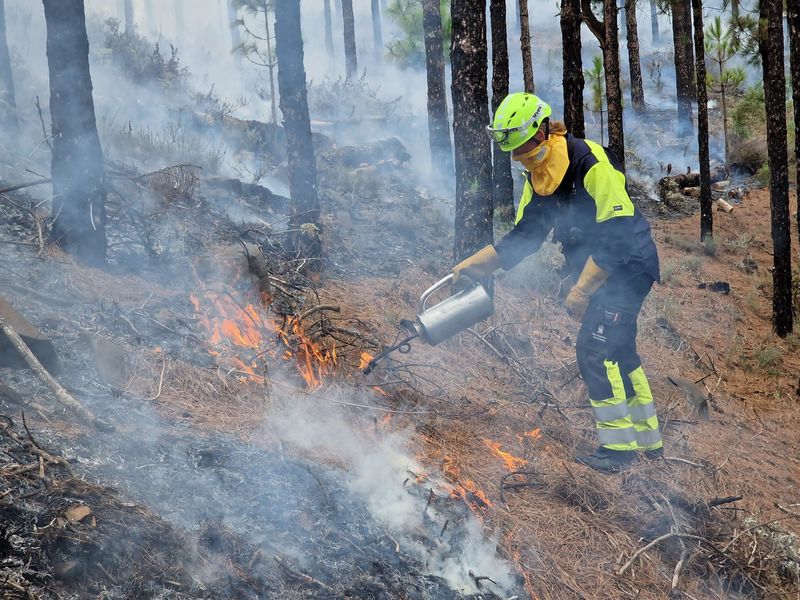BIO FOR PIRI project starts to improve wildfires prevetiona and impulse local bioeconomy in the pre Pyrenean regions. Led by Catalunya La Pedrera Foundation, the BIO FOR PIRI consortium is composed by Forest Science and Technology Center of Catalonia, Pau Costa Foundation, Empresa y Clima Foundation, Bearded Vulture Foundation and IntegraPirineos Foundation).
BIO FOR PIRI’s primary objective is to intervene in key factors for the prevention of the extreme wildfires in the Pyrenees and Pre-Pyrenees, a vulnerable territory because of climate change and rural abandonment. And to promote local economy generating new opportunities for local population by implementing a sustainable forest management.
In this context, the project will plan and define action criteria to prevent the risk of extreme wildfires at both the Pyrenean and pre-Pyrenean area. Specifically, strategic management points will be identified in Alinyà (Alt Urgell, Lleida) and Aínsa (Sobrarbe, Huesca) to prevent the fires from getting extreme. Forestry actions will also be carried out to reduce the spread of wildfires, and the commercialization of the resulting products such as wood or biomass will be promoted to enhance local socioeconomic development. The project will also pay special attention to improving the biodiversity of the managed forests and to consolidating the extensive local livestock to subsequently maintain the actions of forest management.
Pau Costa Foundation in collaboration with GRAF technical unit in Catalonia and Aragon’s Prevention and Extinction operative, will contribute by determining the strategic criteria and drawing up fire prevention plans considering ecological and socio-economic aspects of the area.
“The project will provide wildfires prediction model that also have an integrative vision of territory values, preserving biodiversity and promoting rural socioeconomic development,” comments David Martín, technician of the project.
BIO FOR PIRI actions will allow an improvement extreme wildfires prevention, especially in a vulnerable area such as the Pyrenees and the Pre-Pyrenees. And also, will generate a positive impact in the socioeconomic development of this area.
“We will work to achieve landscapes more resilient that allow a sustainable fire regime based on natural processes, and that in turn facilitates the socioeconomic development of the area.” concludes David Martín.
BIO FOR PIRI is supported by Fundación Biodiversidad of Ministerio para la Transición Ecológica y el Reto Demográfico (MITECO) within the framework of the Recovery, Transformation and Reslience Plan (PRTR), financed by European Union – Next GenerationEU.







